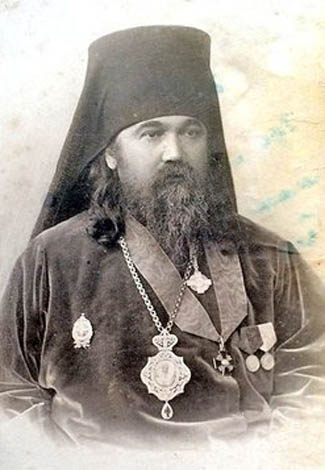Levytsky, Parfenii
Levytsky, Parfenii [Левицький, Парфеній; Levyc'kyj, Parfenij; secular name: Памфіл; Pamfil], b 10 October 1858 in Plishyvets, Hadiach county, Poltava gubernia, d January 1922 in Poltava. Orthodox bishop. A graduate of the Kyiv Theological Academy (1882), he worked as an inspector of religious schools before being consecrated bishop of Mozhaisk (near Moscow) in 1899. As bishop of Kamianets-Podilskyi (1904–9) he supported the Ukrainianization of church life. He supervised the editing and publication of the first Ukrainian translation (by Pylyp Morachevsky) of the Gospels in the Russian Empire and introduced its use in services, and in 1907 he asked the Holy Synod for permission to introduce the Ukrainian language into local parochial schools. Levytsky also made frequent tours of his eparchy, on which he delivered sermons in Ukrainian and encouraged his priests to do the same. His conduct earned him the enmity of the conservative and chauvinistic Russian church hierarchy, and he was transferred to Tula.
Levytsky returned to Plishyvets after the February Revolution of 1917. Although in official retirement, he soon organized a Ukrainian Orthodox brotherhood in Poltava and then consented to be bishop of Poltava after the emigration of the serving bishop. At the request of the All-Ukrainian Orthodox Church Council, he agreed to assume the leadership of the newly formed Ukrainian Autocephalous Orthodox church (UAOC) in 1920 and was elected metropolitan of Kyiv in May 1921. Under pressure from the hierarchy of the Russian Orthodox church, however, he withdrew his candidacy and severed ties with the UAOC. He died soon afterward.
[This article originally appeared in the Encyclopedia of Ukraine, vol. 3 (1993).]
